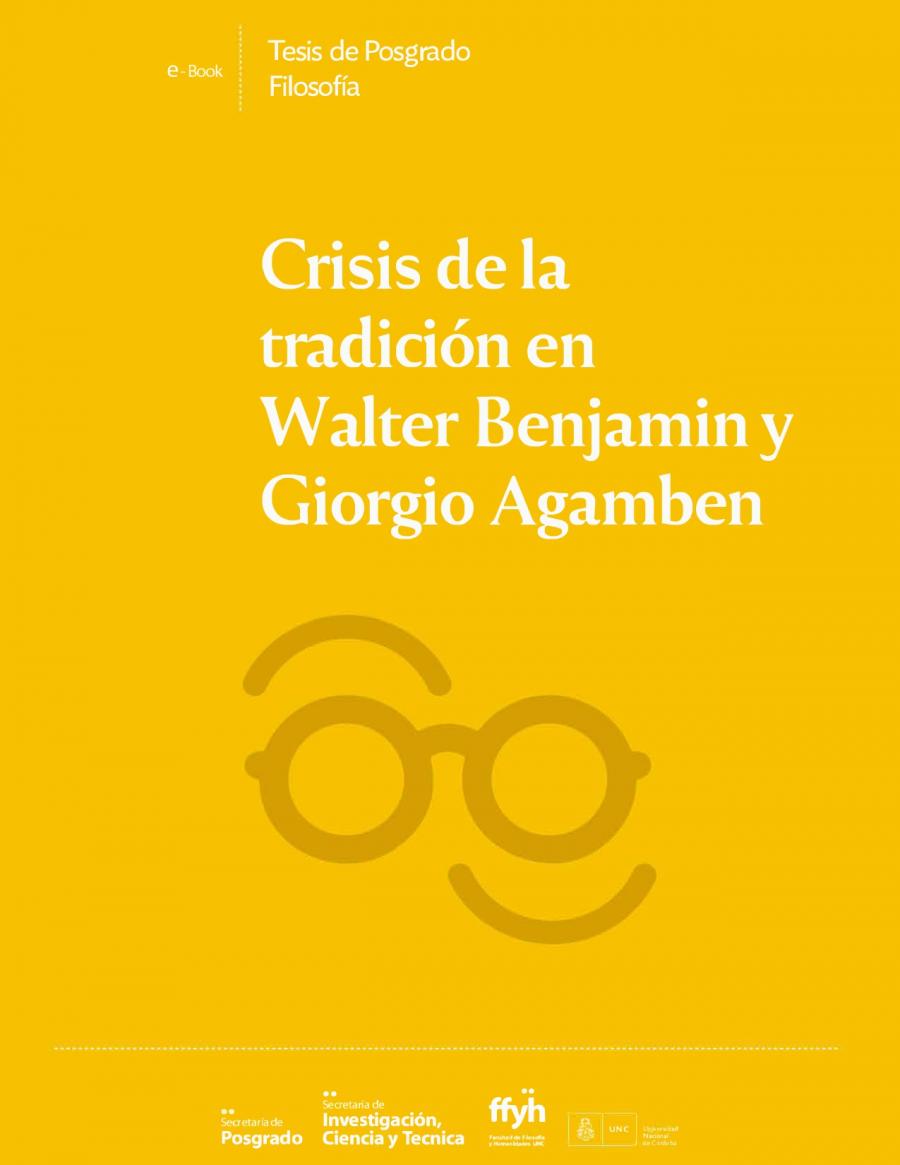The crisis of tradition in Walter Benjamin and Giorgio Agamben
Keywords:
philosophy, crisis of tradition, Benjamin, Walter 1892–1940, Agamben, Giorgio 1942–Synopsis
This paper explores the problem of the crisis of tradition based on the writings of Walter Benjamin and Giorgio Agamben, considering their interpretations of Kafka's literature. We investigate how the authors observe a crisis of the common past, and we question the possibilities of rebuilding bridges that connect the past and the present, since we need some kind of historical affiliation so that our actions are not reduced to a mere accumulation of scattered fragments. These concerns guide our work, concerns that can be condensed into the question of meaning after the crisis of once-inherited certainties. If all traditional references have lost their validity, how can we restructure time to orient ourselves in history, how can we find meaning without seeking support in some ultimate foundation?
In the first chapter, we explore Benjamin's diagnosis of the “impoverishment” of the ability to transmit experience. We argue that the idea of “montage of quotations” constitutes a resource for narrating and constructing new connections between the past and the present. In other words, we show how quotations are a resource for transmitting certain forgotten and frustrated experiences from the past, thereby constructing a temporal horizon to guide our actions. In the second chapter, we propose two elements of Benjamin's interpretation of Kafka that allow us to position ourselves in the face of the crisis of transmission, namely: the form of the “parable” in rabbinical narratives and the idea of “study.” In the third chapter, we return to Agamben and argue that the author radicalizes and generalizes Benjamin's statements about the crisis of transmission. For him, the crisis involves not an “impoverishment” but the ‘destruction’ of experience. Despite this, we propose the hypothesis that it is also possible to find elements in Agamben's work that would allow us to address the crisis of tradition, such as the “montage of temporalities,” the “paradigm,” and “testimony.” In the fourth chapter, we focus on Agamben's reading of Benjamin's reception of Kafka, in which the author's interest lies in deepening the current disarticulation of tradition in order to experience, at this extreme, the absolute power that constitutes us. If Agamben emphasizes remaining in the experience of power, in Benjamin we find a way to build links between the past and the present that allow us to orient ourselves in time in new ways. We conclude by considering the relevance and challenge of constructing new meanings after the crisis of tradition, notwithstanding the importance of always keeping in mind our condition of absolute power.

Downloads
Published
Categories
License

This work is licensed under a Creative Commons Attribution-NonCommercial-ShareAlike 4.0 International License.


